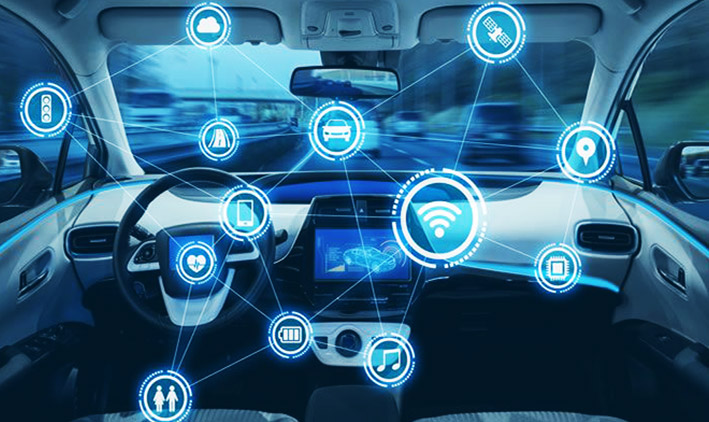
Introduction: Current Challenges in Car Security
In the contemporary hastily evolving automotive landscape, conventional automobile security features are going through unparalleled challenges. From vulnerabilities in keyless entry structures to the chance of far-off hacking, the safety of motors is becoming more and more complicated. As motors emerge as greater related and self-sustaining, the want for sturdy cybersecurity measures has never been greater.
To combat emerging threats, the car enterprise is making an investment closely in advancements in cybersecurity. From state-of-the-art intrusion detection systems to actual-time danger intelligence, manufacturers are adopting proactive protection mechanisms to protect motors in opposition to cyber-attacks. Encryption protocols and steady conversation channels are being included into linked vehicles to strengthen their resilience towards hacking tries.
Advancements in Automotive Cybersecurity
To combat emerging threats, the automotive industry is investing heavily in cybersecurity improvements. From sophisticated intrusion detection systems to real-time threat notifications, manufacturers adopt a variety of methods to protect devices from cyberattacks associated with encryption protocol and of passive communication mechanisms to strengthen their resilience against intrusion attempts. Both cars are included. To combat emerging threats, the automotive industry is investing heavily in cybersecurity improvements. From sophisticated intrusion detection systems to real-time threat notifications, manufacturers adopt a variety of methods to protect devices from cyberattacks associated with encryption protocol and of passive communication mechanisms to strengthen their resilience against intrusion attempts. Both cars are included.
The Role of Artificial Intelligence in Car Security
Artificial intelligence (AI) is revolutionizing vehicle security by means of enabling predictive analytics and real-time threat detection. Machine studying algorithms analyze massive amounts of information to identify styles and anomalies indicative of capacity security breaches. AI-powered authentication systems, utilizing facial popularity and biometric sensors, are changing conventional key-based entry techniques, making automobiles less vulnerable to theft.
Biometric and Facial Recognition for Vehicle Access
Biometric authentication, consisting of facial reputation and fingerprint scanning, is emerging as a stable opportunity to conventional key fobs. By incorporating biometric sensors into motors, producers can ensure that handiest authorized people can get entry to the automobile, substantially lowering the threat of unauthorized entry and theft.
GPS Trackers: Enhancing Car Security
GPS trackers are playing an important function in enhancing vehicle security by permitting real-time region tracking and robbery restoration. The gadgets such as Power Finder 4G, discreetly set up in cars, allow proprietors to reveal their automobile’s whereabouts remotely. In the occasion of theft, GPS trackers facilitate brief recuperation by offering accurate region records to law enforcement agencies.
Blockchain Technology: Securing Vehicle Data
Blockchain generation holds vast ability in securing automobile data and transaction statistics. By decentralizing statistics storage and imposing tamper-resistant ledgers, blockchain can save you unauthorized access to and tampering of important information, along with mileage statistics and upkeep history. This ensures the integrity and authenticity of car statistics, enhancing agree with and transparency within the car environment
Conclusion: Future Prospects in Car Security
As car technology continues to conform, the future of car security seems promising. By embracing modern technology inclusive of AI, biometrics, GPS trackers, and blockchain, manufacturers can live beforehand of evolving threats and make certain the protection and security of linked cars.
The integration of those advanced technologies will no longer only enhance the protection of motors but also pave the way for brand new features and functionalities. For instance, AI-pushed security structures can adapt to evolving threats in actual-time, while biometric authentication strategies offer convenience and more advantageous protection for car proprietors.
Furthermore, the great adoption of GPS trackers will no longer handiest deter theft however additionally enable green fleet management and car monitoring. The blockchain era, with its immutable and obvious ledger system, will revolutionize how vehicle information is stored and shared, making sure facts are integrity and stopping fraud.
However, as we look toward the future, it’s vital to recognize that cybersecurity is an ongoing undertaking. With each development in technology, new vulnerabilities can also stand up, requiring regular vigilance and innovation to stay ahead of malicious actors.
Therefore, collaboration between the car industry, cybersecurity professionals, and regulatory bodies may be essential in developing sturdy security frameworks and standards. By running together, we can create a safer and extra secure car ecosystem for generations to come back.


